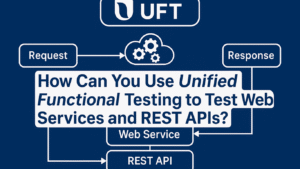Introduction
Modern IT projects are fast-paced, complex, and heavily reliant on seamless collaboration between technical teams and business stakeholders. In this environment, the Business Analyst (BA) has become the bridge that ensures projects don’t just deliver working software but also deliver value. A Business Analyst Certification – Live Projects has emerged as the gold standard for professionals because it does more than teach theory; it immerses learners in real scenarios, preparing them with the skills employers demand.
With IT training with job placement as a core advantage, learners gain not just knowledge but also career-ready experience. But what exactly are these core skills that define a Business Analyst in modern IT projects? Let’s explore in detail.
The Modern Role of a Business Analyst
A Business Analyst is not just a requirement gatherer anymore. They are:
- Strategists who align IT solutions with business goals.
- Problem Solvers who identify gaps and propose value-driven solutions.
- Facilitators who drive collaboration among diverse teams.
- Translators who convert technical details into business-friendly insights.
The evolution of IT has expanded their role, demanding new tools, certifications, and skill sets.
Core Skills Every Business Analyst Must Master

1. Requirements Gathering and Elicitation
At the heart of every BA’s role is the ability to capture the true needs of stakeholders.
- Why it matters: Poorly gathered requirements account for nearly 47% of IT project failures (Standish Group report).
- How it works in practice: A BA must know how to use interviews, workshops, surveys, and observation techniques to uncover explicit and hidden needs.
- Tools that help: JIRA, Confluence, Microsoft Teams, or Trello.
Example: In an e-commerce project, requirements gathering goes beyond “a shopping cart system.” A skilled BA identifies nuances like abandoned cart tracking, personalized recommendations, and third-party payment integration.
2. Process Mapping and Modeling
Modern IT projects rely on visual clarity. A BA should create diagrams that capture processes, workflows, and decision-making points.
- Frameworks used: BPMN (Business Process Model and Notation), UML (Unified Modeling Language).
- Value delivered: Reduces miscommunication by 60% (McKinsey study).
- Real-world scenario: For a healthcare system upgrade, a BA models the patient check-in process to show how digital kiosks integrate with legacy systems.
Diagram Concept (for visualization in the blog):
Patient registers → Insurance validation → Appointment confirmation → Data stored in EHR system.
3. Strong Data Analysis Skills
Data is the new currency. A modern BA must interpret and analyze datasets to provide actionable insights.
- Core competencies: SQL queries, Excel pivot tables, and basic visualization in tools like Power BI or Tableau.
- Why it matters: According to Gartner, 70% of successful IT projects rely on data-backed decisions.
- Example: In a logistics project, a BA uses SQL to analyze delivery times and proposes a new scheduling algorithm, reducing delays by 15%.
4. Communication and Interpersonal Skills
Communication is the BA’s superpower. They interact with developers, testers, executives, and customers each with different priorities.
- Key aspects: Active listening, clear documentation, storytelling with data, and negotiation.
- Practical application: Explaining why a project needs extra budget to executives while simplifying technical jargon.
- Evidence: Harvard Business Review reports that clear communication skills reduce project rework by 23%.
5. Agile and Scrum Knowledge
- Today’s IT projects rarely follow waterfall methodologies. Agile is dominant. Why Agile skills matter: Over 70% of organizations now adopt Agile practices (VersionOne State of Agile Report). The value of a Business Analyst Certification becomes clear in Agile contexts, where BAs play a crucial role in writing user stories, participating in sprint planning, backlog refinement, and acceptance testing. For example, a BA in a fintech project converts a vague request like “improve online banking” into user stories like “As a customer, I want biometric login so that I can quickly access my account.”
6. Problem-Solving and Critical Thinking
BAs are solution architects for business problems.
- Real-world approach: Use root cause analysis, SWOT, or fishbone diagrams.
- Case study: In a banking app project, login failures surged. A BA traced it back to an outdated third-party authentication API, saving weeks of trial-and-error debugging.
- Why it’s crucial: Companies like Deloitte highlight problem-solving as the top skill for BA hires in 2025.
7. Technical Awareness
While BAs don’t code, they need technical fluency.
- Why: It builds credibility with developers and helps in solution evaluation.
- Examples of technical awareness:
- Understanding APIs, XML/JSON data exchange.
- Knowing the basics of databases and cloud infrastructure.
- Awareness of cybersecurity best practices.
Scenario: A BA who understands REST APIs can better define requirements for integrating a CRM system with a marketing automation platform.
8. Stakeholder Management
A project’s success often depends on how well stakeholders are managed.
- Practical skills: Identifying key influencers, mapping stakeholder expectations, and balancing conflicts.
- Example: In a government IT project, a BA manages both compliance officers and end-users, ensuring both regulatory and usability goals are met.
- Research insight: PMI notes that effective stakeholder management improves project success by 30%.
9. Documentation and Specification Writing
Even in Agile, documentation remains critical.
- Types of documents a BA creates:
- Business Requirement Documents (BRDs)
- Functional Requirement Specifications (FRS)
- User Stories & Acceptance Criteria
- Test Cases (in collaboration with QA teams)
Real-world insight: A BA writing clear acceptance criteria ensures testers can validate requirements without ambiguity.
10. Adaptability and Continuous Learning
Technology evolves rapidly. BAs must adapt.
- Trends to track: AI integration, blockchain projects, DevOps adoption, and cybersecurity-driven designs.
- Career perspective: Employers prefer certified professionals who demonstrate ongoing learning. That’s why Business Analyst Certification – Live Projects programs are increasingly valued and they prove adaptability through practice.
Business Analyst Certification – Live Projects: Why It Matters

Certifications validate skills, but live projects prove them.
Benefits:
- Hands-On Exposure: Learners solve real problems, not just theoretical case studies.
- Portfolio Building: Projects create a tangible record of capabilities.
- Job Advantage: Employers prefer candidates who can demonstrate readiness from day one.
Industry Insight: Glassdoor data shows certified BAs earn 15–20% more than uncertified peers.
How These Skills Apply in Modern IT Projects
Example 1: Digital Banking App
- Requirements gathering: Customers want faster onboarding.
- Process modeling: Map KYC verification with digital signatures.
- Data analysis: Track approval times to identify bottlenecks.
- Result: Reduced customer onboarding from 3 days to 15 minutes.
Example 2: Healthcare Data Migration
- Communication: Bridge between doctors and IT engineers.
- Technical awareness: Ensure HIPAA compliance.
- Stakeholder management: Balance compliance with usability.
- Result: Migration completed with zero data breaches.
Evidence-Based Support
- Stat #1: PMI found that organizations with mature BA practices had 38% higher project success rates.
- Stat #2: LinkedIn’s Emerging Jobs Report highlights “Business Analyst” among the top 10 in-demand roles for 2025.
- Case Study: A Fortune 500 retailer credited BAs with saving $3.5 million in IT project costs by redefining scope early.
Key Takeaways
- Business Analysts are critical in modern IT projects, bridging strategy, technology, and execution.
- Core skills include requirements gathering, process modeling, data analysis, communication, Agile expertise, stakeholder management, documentation, and adaptability.
- A Business Analyst Certification – Live Projects equips professionals with validated, practical expertise that employers trust.
- Data-backed evidence shows certified professionals earn more and secure better career advancement opportunities.
Conclusion
Mastering these skills makes you indispensable in IT projects. If you want to stand out, pursue a Business Analyst Certification – Live Projects and gain real-world, job-ready expertise through IT certification classes that employers recognize.
Take action today to equip yourself with skills that employers value most.













